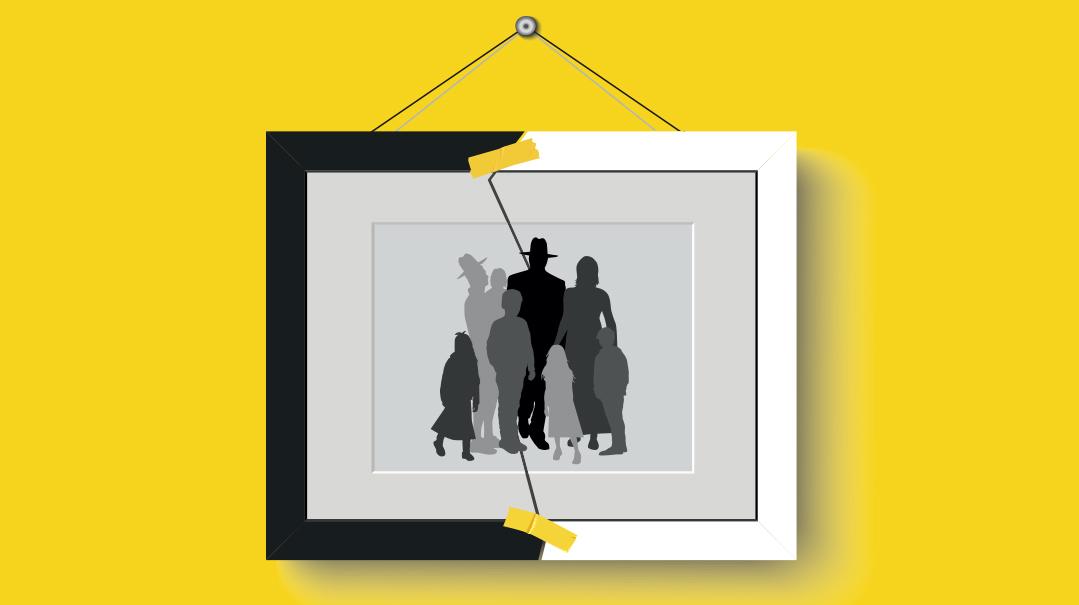One Mother, One Family

Against a backdrop of grief, Rebbetzin Ruth Schonfeld blended two families

As told to Rivka Streicher by Rabbi Yoel Schonfeld
They lost their spouses just a month apart, spouses who were buried just a few graves over from each other. Destinies thus intertwined, Mrs. Ruth Schindelheim and Rabbi Fabian Schonfeld joined forces and married. As the newly minted Rebbetzin Schonfeld, Ruth created a home for their orphaned children and helped her husband lead the thriving community of the Young Israel of Kew Gardens Hills. Her stepson, Rabbi Yoel Schonfeld, recalls the warm and loving haven the Rebbetzin created and the marvelous woman she was
MY
mother, Lottie Schonfeld, has been gone now over 63 years. For decades following her petirah, I would dream about her several times a week. Then, about 20 years ago, the dreams abruptly stopped. I don’t know why.
What I do know is that to this day every time I see an old tree, I think to myself, That tree was around when Mommy was alive…. When I see workers pouring cement to make a new sidewalk in my community of Kew Gardens Hills, New York, I sigh. Don’t remove the sidewalk that my mother walked on.
When Hank Aaron retired from baseball in 1976, and everyone was buzzing with it, all I could really think was it’s a shame that a ballplayer who was active during Mommy’s lifetime was now gone from the scene. Inane. My mother knew nothing about baseball, but to me it was a connecting link.
I was seven when my mother passed away. Today, I have grandchildren that age and much older. But the loss of my mother has always run deep. In the decades since her death, I’ve known loss and love; raised my own children together with my dear wife, Peri, seen them to the chuppah — one of them, twice — and am now in the thick of grandparenting.
Reflecting back, years — and many experiences — later, it’s my stepmother, Ruth Schonfeld, I think of. What she gave me, what she gave our family, against a backdrop of grief and brokenness. How she blended two families, how she was our mother, our Ima.
The Beginning
My biological mother, Lottie Schonfeld, was the daughter of Rav Yoel Jakobovits, rav in Lackenbach, Austria. Incredibly, the Jakobovits family managed to escape to London and avoid Hitler’s grip. My mother was one of seven, one of her brothers being Rabbi Immanuel Jakobovits, who served as chief rabbi of England.
My father, Rabbi Fabian Schonfeld, and his brother managed to maneuver around Europe during the war years on their own, until they, too, found refuge in England. My father was sent to the rural town of Shefford — under the care of Dr. Solomon Schonfeld (no relation) who oversaw the Kindertransport — a safe haven for thousands of war-torn Jewish children.
In Shefford, my parents met, and ultimately married. They were a charming couple of almost fairy-tale lore. They moved to London and had two daughters there, my sisters Viva and Vicky. They then emigrated to the United States for my father to begin his career in education and the rabbinate. I, their only son, was born in Queens, New York in 1952, followed by my sister Debby in 1957.
Just two years after Debby’s birth, my mother was diagnosed with acute leukemia, and within three weeks tragically passed away, at the age of 37, on the bitterest of days, Tishah B’Av.
My father, flourishing rabbi of the Young Israel of Kew Gardens Hills, was totally crushed by the passing of his beloved wife.
Oops! We could not locate your form.






